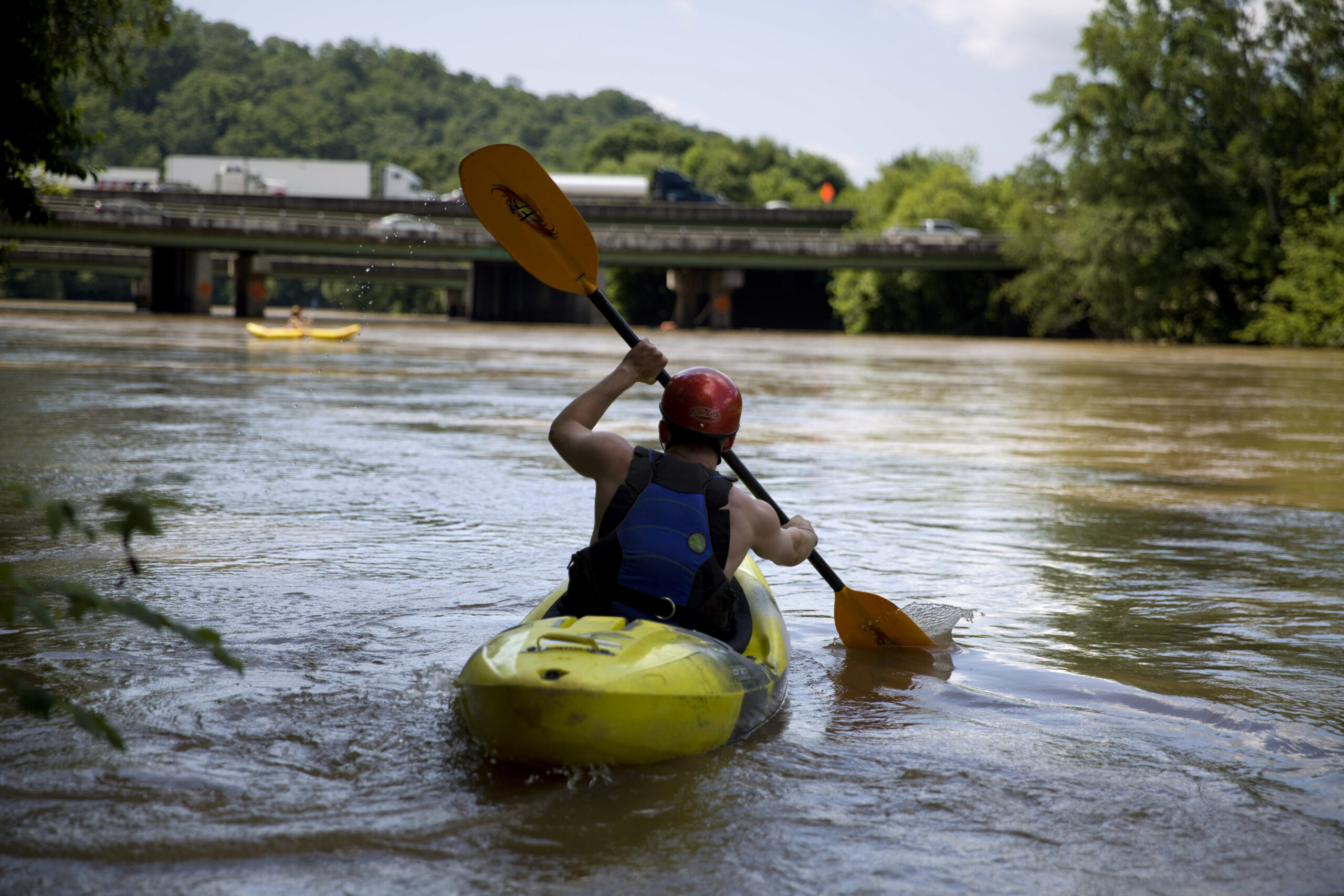Florida, Georgia and Alabama have argued for nearly 30 years over the water in the rivers the states share. Since late 2013, the most prominent piece of that fight has been a U.S. Supreme Court case in which Florida asked the justices to limit how much water Georgia can use.
Thursday, lawyers for the states go to court again for a hearing in the case that could affect the future of Georgia’s biggest industry, as well as a Florida ecosystem and the jobs and wildlife that rely on it.
Florida claims Georgia uses too much water from the Chattahoochee and Flint Rivers, and not enough of it makes it down to the Apalachicola River and Bay in the Florida Panhandle. The state said it’s taken a toll on both on the environment there and on Apalachicola Bay’s oysters.
The oyster industry used to be the backbone of the economy in Apalachicola, Steven Rash, owner of Water Street Seafood, said. Now, it’s gone.
“You might see one or two boats out in the Bay occasionally; literally, that’s it,” he said. “There are no Apalachicola oysters. None. Like zero. They’re not there anymore.”
Upstream from the Apalachicola Bay, the tupelo honey trees have problems, too, said Georgia Ackerman, riverkeeper and executive director at Apalachicola Riverkeeper.
“Our forests have changed as a result of the drying up of the flood plain, and that has ripple effects across the entire Apalachicola Basin,” she said.
But in this case, demonstrating there’s a problem isn’t the sticking point — the question at the heart of Florida v. Georgia is whether capping Georgia’s water use will fix anything.
Searching For A Solution
A case like this, where one state sues another, goes straight to the U.S. Supreme Court. The justices tap a special master to consider the evidence and make a recommendation to them. In 2017, a previous special master empathized with Florida’s situation.
“There is little question that Florida has suffered harm from decreased flows,” special master Ralph Lancaster wrote.
Lancaster, a Maine attorney who passed away earlier this year, also said that Georgia had been irresponsible in its water management.
“Georgia’s position – practically, politically, and legally – can be summarized as follows: Georgia’s agricultural water use should be subject to no limitations,” he wrote.
And yet, Lancaster ultimately sided with Georgia in his report to the Supreme Court, because the remedy Florida was asking for, to cap Georgia’s water use, wouldn’t, he said, alleviate Florida’s problems.
That’s because the U.S. Army Corps of Engineers operates dams in the river system, and it’s not a party to the case. Lancaster said that without knowing how the agency would respond, there was no way to know that Florida’s proposed fix would do anything.
The Supreme Court justices, not entirely satisfied with Lancaster’s report, sent the case back to a new special master to tackle more questions. That new special master, Judge Paul Kelly of the 10th Circuit Court of Appeals, hears arguments this week in New Mexico.
Decades Of Disagreements
This isn’t the only legal fight right now over water in Florida, Georgia and Alabama. The Apalachicola-Chattahoochee-Flint, or ACF, River Basin isn’t even the only river system the states disagree about; there’s also the ACT, the Alabama-Coosa-Tallapoosa, which flows from North Georgia through Alabama.
In this particular case, while Florida had initially called out both the farmers in South Georgia and metro Atlanta homes and businesses, the focus has ended up on the farms.
Casey Cox, a sixth-generation farmer in South Georgia’s Flint River basin, is younger than the so-called water wars. She said if the justices end up siding with Florida, it would add to the obstacles farmers are already coping with.
“We’re dealing with these water issues,” she said. “We’re dealing with trade issues. We’re dealing with hurricane recovery. So it’s challenging.”
Cox said an existing moratorium on new wells in the Floridan aquifer already effectively amounts to a cap on Georgia farmers’ water use in her region.
No Resolution Yet
At one point, the governors of the states were close to a resolution in the case, and some observers think it’s still possible to work out a compromise — involving a lot of ongoing communication — that could resolve the fight.
Flint Riverkeeper Gordon Rogers compared the states to members of an arguing family.
“You know, everybody sometimes goes to their corners, and they don’t talk to each other, and that’s bad, and that’s where we are,” he said. “But then there’s other discussions that are intense but productive.”
Florida filed this suit in 2013. If the special master makes his recommendation in the next six months or so, the states could find themselves back in front of the Supreme Court in 2021.








